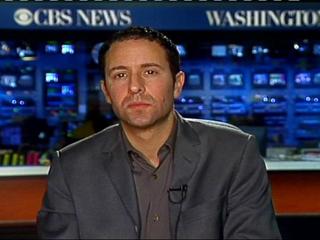 This is a guest “note” by Daniel Levy.
This is a guest “note” by Daniel Levy.
Daniel Levy directs the New America Foundation/Middle East Task Force and formerly served as a senior Israeli negotiator. Levy is a principle drafter of the Geneva Israel-Palestine accords.
Israel’s parliament, the Knesset, reopened today after a long break for the summer and the Jewish holidays. In line with protocol, Israel’s president opened the winter session and Shimon Peres had this to say on the linkage between reaching peace with the Palestinians and addressing the Iran issue:
In my opinion, if we move forwards with peace and make peace with the Palestinians, and if we start negotiations with Syria and Lebanon, we will remove the main pretext for the Iranian madness – against us and against the other residents of this region. (President Peres, October 12th in the Israeli Knesset).
 Now Mr. Peres is in reality not exactly the dove he is portrayed to be (he authorized many of the settlements, he supported Israel’s recent wars with Lebanon and Gaza, and he never really earned his own Nobel peace prize), but this was nonetheless an interesting acknowledgment of the linkage from Israel’s head of state – and it seems to directly contradict the messaging coming from Israel’s ambassador to Washington D.C., Michael Oren.
Now Mr. Peres is in reality not exactly the dove he is portrayed to be (he authorized many of the settlements, he supported Israel’s recent wars with Lebanon and Gaza, and he never really earned his own Nobel peace prize), but this was nonetheless an interesting acknowledgment of the linkage from Israel’s head of state – and it seems to directly contradict the messaging coming from Israel’s ambassador to Washington D.C., Michael Oren.
Here’s Michael Oren in an interview on October 3rd for Newsweek:
Q: Do you believe that the Arab states would make their support of action against Iran contingent on progress in the peace process?
A: No, there is no linkage whatsoever. The Arab states understand that the peace process is going to take a while, and we don’t have a while with Iran. The peace clock and the Iranian nuclear clock are running at completely different speeds.
Oren was simply, and spiritedly, sticking to a lame PR line that has now been exposed as rubbish by none other than Israels’ own president. On entering office six months ago, Prime Minister Netanyahu tried a similar trick, arguing that Iran would have to be dealt with first and that the Palestinian issue could be placed on the backburner. But President Obama wasn’t buying any of that, insisting that both issues be addressed in parallel, and much to the chagrin of the Likud hawks, making Israeli-Palestinian peace a priority – something he repeated when responding to being awarded the Nobel peace prize last Friday.
The linkage, though aggressively denied by occupation apologists, is all too real (and credit to President Peres for acknowledging that). Here’s how it works.
Iran’s ability to spread influence and use leverage in the region is partly a product of the largesse it spreads around and of the allies it has through denominational allegiance or simple patronage. But crucially, it also depends on the narrative that Iran espouses–and the unresolved Israeli-Palestinian conflict is central to that. Iran does not have an appealing story to tell the region when it comes to it system of governance based on an interpretation of Shia jurisprudence (Velayat-e Faqih) or when it comes to its internal freedoms and achievements.
Rather, the narrative which allows Iran to speak to the Muslim and notably Sunni street, above the heads of Arab leaders, can be paraphrased as follows:
Only we, Iran, are standing up to the Israelis and the Americans in defense of our downtrodden Palestinian brothers and sisters; you, the Arab leadership who are close to America, host American troops, visit Washington and do Washington’s bidding, and are even openly or sometimes secretly in contact with the Israelis–all these friendships have done nothing to help the Palestinians or address their grievance; our version of resistance is therefore honorable when compared to your shameful collusion.
It may be grating to the ear and make us feel uncomfortable, but that is a message that resonates. And that is what President Peres seemed to understand in suggesting that peace with the Palestinians would, in his words, “remove the main pretext for the Iranian madness.”
Ending the occupation and delivering peace would fundamentally undermine Iran’s narrative and its leverage.
Realizing a comprehensive peace can be done as part of a process of U.S. dialogue with Iran in which these issues are also raised, or it can be done in parallel to an engagement with Iran (it should not be done as part of a blunt, unsophisticated frontal assault on Iran, as was tried at Annapolis during the Bush presidency).
However, it appears that the neoconservatives in this country and their Likud friends in Israel, who expend so much time and energy in refuting this linkage, just forgot to cc Israel’s president on the talking points memo.
— Daniel Levy


76 comments on “Who Didn’t Get the Memo? Israel’s President or its D.C. Ambassador?”